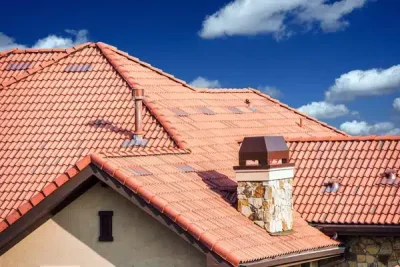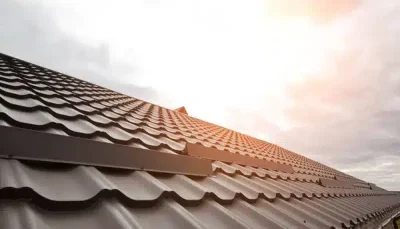All green roofing materials help reduce your carbon footprint, but continue to energize your roof. You will find energy-efficient metal roofs and cedar shake shingles certified for sustainability among these durable choices offering long-term savings.
New Orleans Territory really got some more roofing options, all eco-friendly, namely elastomeric roof coatings and reflective roof systems, battling heat as well as moisture. Tune in to how these materials can make a difference for your house as well as the world. Big Easy Roofers can assist you with the roofing materials you need. Ready to go green with your roof? Reach out to us today—we’re here to help you make the right sustainable choice.

Eco-friendly roofing materials that will keep your carbon footprint low and your roof fresh with energy. From energy-efficient metals to sustainable cedar shake shingles, these choices lend themselves to durability and long-term savings.
In the good old days of the New Orleans Territory, the game was weather resilience, and so eco-friendly solutions like elastomeric roof coatings and reflective roof systems are doing battle against heat and moisture.
A major advantage is improved energy efficiency. Cool roof systems reflect most of the sunlight and keep the interior cooler, thereby saving 20-50% on air conditioning. In winter, materials like metal or slate insulate and retain heat, thus cutting down heating costs. This balance provides comfort while reducing energy use and carbon footprints.
By choosing environmentally friendly roofing systems, the support for sustainability is reduced when it comes to reliance on finite resources and emissions. For some, it is a moral commitment to try to diminish their footprint; for others, it is the efficiency they strive for.
With sustainability becoming an important current trend to follow, the roof manufacturing industry is now offering various ecologically sound materials for roof construction. These materials reduce one’s ecological footprint through durability, energy savings, and prolonged value. The following product list includes top eco-friendly picks for roofing material.
Metal roofs are sustainable and durable, composed of at least 25% recycled content, and are fully recyclable themselves at the end of their life. In hot climates, they assist in keeping homes cool, thus reducing power bills. Common materials are aluminum and steel, with more sophisticated selections available, like copper.
Solar tiles are both a roofing product and a fresh, renewable energy source. Unlike the common solar panel, solar tiles seamlessly integrate with roofs, keeping the home attractive while generating clean energy. Solar tiles may have high startup costs, but long-term savings on energy bills would offset costs, plus tax credits will help.
Green roofs or living roofs utilize organic plant matter for insulation. They support temperature regulation and litter clean-up of stormwater runoff while relieving the urban heat island effect. More often than not, they can be found on commercial buildings, but they deserve attention for residential properties as well, requiring maintenance like watering and weeding now and again.
Materials thrown away, such as plastic and rubber, are recycled into shingles, mimicking the appearance of conventional shingles, but thus providing a sustainable alternative. They help minimize the land waste and have a long life of more than 30 years, making them affordable for a conscious homeowner.
These tiles are highly sustainable and far durable, clay tiles often exceeding 100 years of life. Because of the weight, such rooftops require reinforced roofing, whereas they function quite well in thermal resistance for hot climates.
Slate is made of a natural stone that is fairly durable, often lasting more than 100 years. Even though it has an impact on the environment while being quarried, the beauty of its long-lasting and low-maintenance option makes it valuable.
The rubber roof is made from reclaimed tires and is lightweight and durable, perfect for flat or low-slope applications. It will withstand extreme weather conditions and requires little maintenance, with reflective coatings available for warmer regions.
Cool roofs decrease heating via the employment of reflective coatings or light-colored materials, to the advantage of structures in warm climates, in reducing energy consumption. These coatings may be applied to existing roofs or will form an integral part of new roofs, lending versatility to a variety of structures.

While picking an eco-friendly roofing, certain crucial aspects must be considered to ensure a sustainable and workable alternative.
The climate of the region impacts the durability of roofing. In heavy rain areas such as New Orleans, use water-repellent materials like metal or slate. In sunnier climates, reflective materials can reduce heat absorption and enhance the energy performance of the building. Anything else becomes a costly repair and waste.
Eco-friendly roof selection ought to contemplate the durability of roofing materials such as metals or clay tiles with a life expectancy of more than 50 years. Maintenance needs are also important. It’s better to go for something that strikes a balance between longevity and ease of maintenance, so the cost and the environmental impact will be minimized.
Roofs are an important visual element governing much of a property. Eco-friendly options such as clay tiles or shingles made from recycled materials are available in a variety of colors and styles to suit your design. For the modern look, solar panels provide both aesthetic and energy benefits. Watch your roof to fit well overall with your structure.
Saving the environment may come at a higher upfront cost for eco-friendly roofing; however, the savings on energy bills can offset this cost. Assess both the upfront and lifecycle costs to measure what best fits your budget.
Look for certifications such as ENERGY STAR and LEED, which confirm that materials meet energy efficiency and sustainability standards; products that contain reliable third-party verification will also exhibit low environmental impact and dependability in performance.
Roofing is more than just an eco-friendly shelter; it is an increase in property value, a decrease in energy cost, and support in environmental protection. Frequently used durable materials such as metals and recycled shingles are binding houses to become energy efficient and minimize waste.
We are available to help you identify the roofing that suits your needs in realizing a sustainable future. Contact us at Big Easy Roofers to see eco-friendly options or schedule a consultation. Together, we can roof your house and protect the environment.